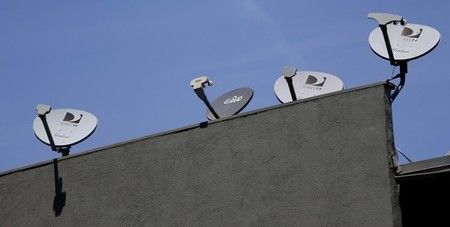Advertisement
Congress scrutinizes pay TV billing, competitive practices

By David Shepardson
WASHINGTON (Reuters) – A U.S. Senate panel disclosed Thursday it is investigating pay TV competition and customer service issues and will call executives from top cable and satellite providers to testify.
Senators Rob Portman, an Ohio Republican who chairs a panel on investigations and Claire McCaskill, a Missouri Democrat, said in a statement Thursday that they will hold a June 23 hearing that will include testimony from Comcast Corp <CMCSA.O>, Charter Communications <CHTR.O>, DirectTV, a unit of AT&T Inc <T.N> and Dish Network Corp <DISH.O>.
The companies did not immediately comment or respond to requests for comment.
The pair said in a joint statement the panel has been investigating the largest cable and satellite TV companies for more than a year, looking at potential barriers to competition in the industry, “including the difficulties faced by companies attempting to create innovative new television delivery models.”
The committee has also been examining billing, fees, refunds and other customer service issues.
“We believe our hearing will be a big step forward for consumers, allowing them to understand how their TV providers really work and make informed decisions about their video service,” the pair said.
The senators noted that a recent American Customer Satisfaction Index survey found pay television service ranked near the bottom of the 43 industries surveyed – a year after the pay-TV industry tied for the lowest score among all industries ranked.
The hearing comes as the Federal Communications Commission has proposed allowing consumers to swap pricey cable and other pay TV boxes for cheaper devices and apps, a change that would boost competition in the $20 billion television set-top box market.
The new proposed rule, unveiled by FCC Chairman Tom Wheeler in January, would allow customers to obtain video services from providers such as Alphabet Inc <GOOGL.O>, Apple Inc <AAPL.O> and Tivo Inc <TIVO.O>, instead of cable, satellite and other television providers.
The proposal has set off a frenzied lobbying battle pitting a tech industry eager to tap into the lucrative market against cable and TV companies, which could lose billions of dollars in rental fees for set-top boxes.
The FCC says 99 percent of U.S. customers now must get their boxes from their cable companies, and they pay on average $231 a year to lease the devices.
Cable companies say the video marketplace is already evolving as more customers replace traditional pay TV services with streaming Internet video.
(Reporting by David Shepardson; Editing by Bernard Orr)











